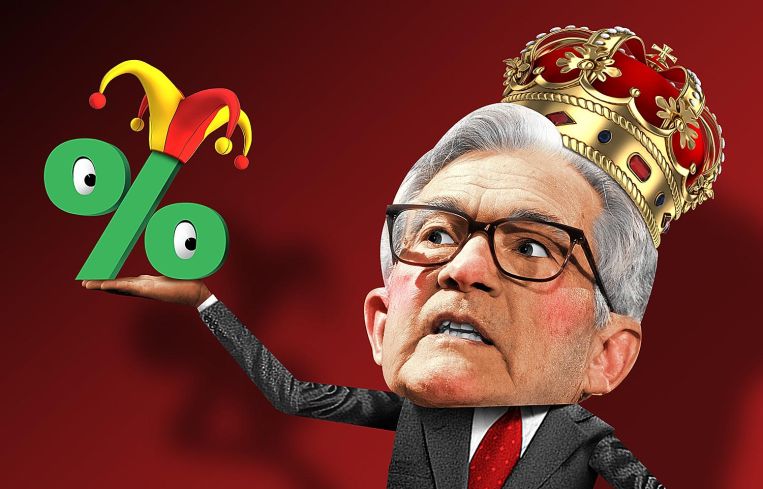How Jerome Powell Became the Most Powerful Figure in CRE Finance
The Federal Reserve Chair has upended the banking system this year
By Andrew Coen May 2, 2023 8:00 am
reprints
Perhaps no one person had more of an impact on commercial real estate finance in the last year than Jerome Powell.
The ex-investment banker who became Federal Reserve chairman in early 2018 was the intellectual and rhetorical force behind nine consecutive interest rate hikes, including four straight increases of 75 basis points from June through November. The central’s bank’s hawkish strategy has brought the federal funds rate up to between 4.75 and 5 percent compared to near zero in early 2022.
“The biggest challenge was the meteoric rise in interest rates and the volatility associated with hyperinflation, which stalled transaction activity, stalled the investment sales market, and meant we had to work twice as hard as we normally do,” said Dustin Stolly, co-President of debt and structured finance at Newmark.
Despite the headwinds caused by rising rates, Newmark, like other firms on Commercial Observer’s Power Finance list, powered through in sourcing $38 billion of loan volume during the past year. Stolly put the feat down to “sheer effort.”
The Fed’s aggressive stance in fighting inflation forced lenders and brokers to work extra hard in bringing deals across the finish line. “It was undoubtedly a tough year, and deals got harder as the year went on,” said Paul Vanderslice, head of CMBS at BMO Capital Markets.
Vanderslice added that despite the rapid rise in interest rates, his team never stopped pushing transactions. What else could they and other finance firms do?
“We continued to originate all the way through the volatility,” Vanderslice said. “Not transacting is a mistake a lot of other platforms make. From a credibility perspective, and to build and maintain a business, you have to stay in the market — or you can be 100 percent right about everything and do no business.”
Rob Rubano, vice chair at Cushman & Wakefield, described the current environment as “the tightest the credit markets have felt since the beginning of COVID,” but despite these challenges the brokerage firm completed $19 billion of originations in 2022. The bulk of C&W’s sourced volume consisted of industrial and multifamily deals.
“We don’t run from these times, we run to them,” Rubano said. “People need real help, and we pride ourselves on being advisers, not brokers”
The rising interest rates that Powell spurred put added importance on lenders requiring interest rate caps for floating-rate deals. Dramatic changes in the Secured Overnight Financing Rate (SOFR) forward curve, which acts as a betting line for the direction interest rates are headed, caused costs for two-year caps to spike in late 2022. A number of floating-rate deals that originated in 2021 with two-year caps are due to expire this year, which is creating added pressure for certain property owners who may be forced into selling their assets because of the higher hedge expenses.
Some lenders have been proactive in working with property owners through the dramatic interest rate changes in order to avoid forced selling.
“I think where we really differentiated ourselves was working with sponsors through the dramatic moves in rates,” said Dennis Schuh, chief originations officer at Starwood Property Trust. “Every single loan had a SOFR cap that needed to be tweaked and adjusted, and there were lots of nuances there, so having our people in-house handling all that asset management and touching almost every loan was key.”
Powell indicated following a quarter-point hike after the Fed’s March 22 meeting that the central’s bank’s previous plans for “ongoing increases” may be adjusted. Such an adjustment could be based on how the collapses of Silicon Valley Bank and Signature Bank affect the banking sector as well as the unemployment picture and consumer prices.
At a press conference a month before that March meeting, Powell couched things in nearly martial terms (or at least sporting ones). “We have more work to do,” he said. “We’re going to be cautious about declaring victory and sending signals that we think the game is won.”
Andrew Coen can be reached at acoen@commercialobserver.com.



